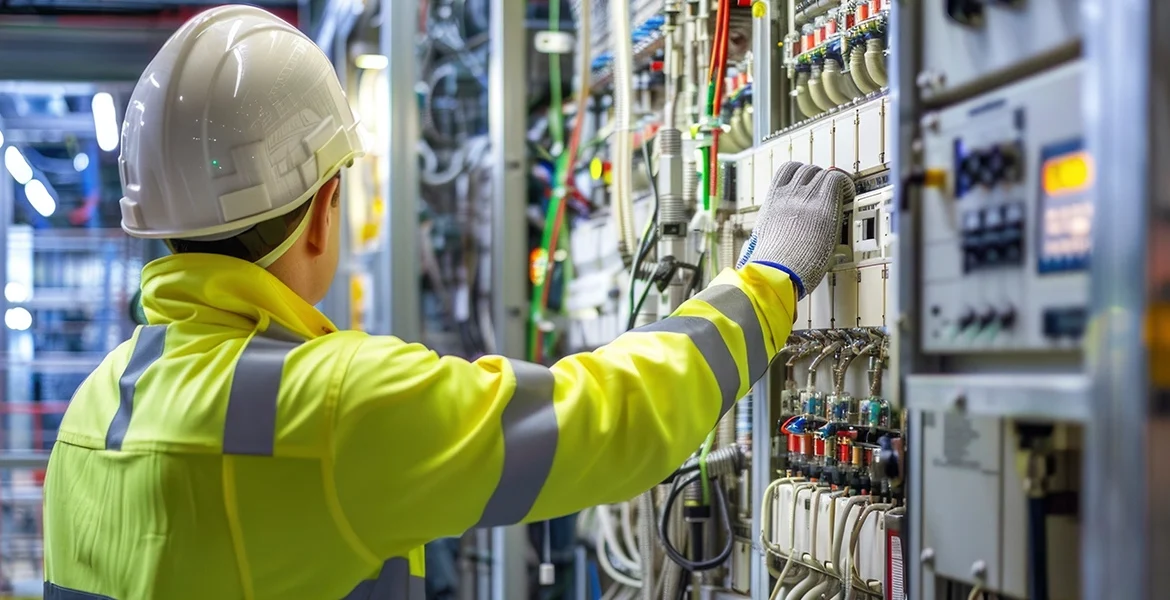Regular electrical inspections are crucial for ensuring safety, whether you’re a landlord, homeowner, or business owner. Since July 1st, 2020, new private tenancies in England must have electrical installations tested by a certified professional before tenants move in. Failure to do so could result in fines of up to £30,000.
What is an EICR Certificate?
An Electrical Installation Condition Report (EICR Certificate) checks the condition of a property’s electrical systems. It identifies faults, damage, or wear that could pose safety risks and provides recommendations for improvements. The landlord’s electrical safety certificate is also recognized as a valid EICR certificate

EICR Certificate
Certified EICR service for up to 15 circuits. Our accredited engineers provide fault finding, diagnostics, and we can do a PAT in the same visit. Legally it’s required every 5 years.
What does an EICR certificate report include?
According to the. UK government, EICR Certificate reports classify issues as:
- Code 1 (C1): Immediate danger with a risk of injury. Inspectors may fix C1 hazards before leaving the property.
- Code 2 (C2): Potentially dangerous, requiring further investigation without delay.
- Code 3 (C3): Suggested improvements, though not essential for passing the inspection.
When do you need an EICR certificate?
Over time, electrical installations deteriorate, increasing safety risks. The UK’s IET Wiring Regulation BS 7671 recommends the following intervals for EICR Certificate inspections:
- Landlords: Every 5 years, after a change of tenancy, or when buying a new rental property.
- Homeowners: Every 10 years, or annually for homes with swimming pools.
- Business Owners: Every 5 years.
Who can carry out an EICR certificate?
Only qualified electricians are authorized to perform an EICR certificate and issue the report.
How much does an EICR certificate cost?
EICR certificate costs can vary based on factors such as:
- Location: Areas with fewer electricians may have higher call-out charges.
- Property Age: Older properties often require more thorough inspections.
- Property Size: Larger properties may take longer to inspect.
- Inspection Duration: Additional work or repairs could increase the overall cost.
Electrical Installation Condition Reports (EICR Certificates) became a legal requirement for all rental properties in April 2020. These reports assess the safety and suitability of a property’s electrical systems and are valid for five years.
Many landlords often ask about the findings in an EICR certificate and what they mean. Below is a straightforward explanation of the key terms you might hear from us or other electricians:
A qualified electrician conducts the inspection according to the BS7671:2022 electrical safety standards. Any issues identified are given codes based on their severity and potential risk, such as:
- C1: Immediate Danger Present Example: a live electrical connection that poses a direct risk of electric shock.
- C2: Danger Imminent, Action Required Example: An underrated fuse that could overheat and potentially cause a fire if an excessive load is applied.
- C3: Improvement Recommended Example: While the system met standards when installed, upgrades are recommended to align with current regulations.
These codes help landlords prioritize which issues need urgent attention and which can be addressed over time.
At Intelligent Repair, all of our EICR Certificate reports come with photographs and detailed engineer notes to clarify the technical findings. Below are some common observations, explained in more detail:
- Lack of RCD protection An RCD (residual current device) adds extra protection to an electrical circuit by cutting off power quickly in case of a fault. Older circuits may not require RCDs, but outdoor sockets and bathroom lighting circuits must be protected. Without RCD protection, these will be coded as a C2 on your report.
- Overrated MCBs (miniature circuit breakers) protect circuits by automatically shutting off the power during a fault. The MCB must be rated correctly for the circuit’s load. If the rating exceeds the capacity of the connected cables, it will be flagged. For example, if a break in a ring circuit turns it into two separate radial circuits, it will be marked as a C2 observation.
- Insufficient IP rating for bathroom accessories Bathrooms are considered special locations in electrical safety regulations, requiring higher protection from water ingress. If the equipment installed in a bathroom isn’t rated to protect against moisture, it will be noted as an observation on the EICR certificate.
Why EICR Certificates Are Mandatory
For all tenancies in the private rental sector, electrical safety certification through an EICR certificate is a legal requirement. Landlords who fail to complete an EICR certificate or ignore its recommended actions could face fines of up to £30,000.
Our team specializes in EICR certificate inspections and testing. We handle everything from scheduling with tenants to ensuring full compliance. Contact us today to arrange your inspection and make property compliance easy and hassle-free!



Leave a Reply
You must be logged in to post a comment.